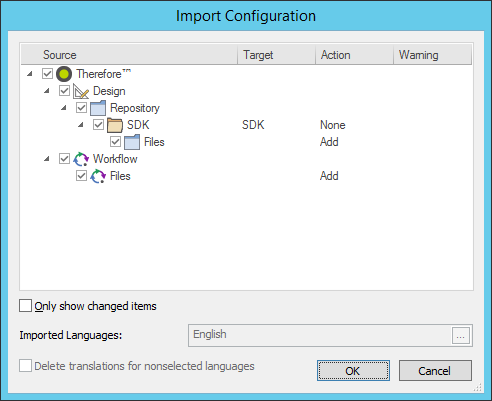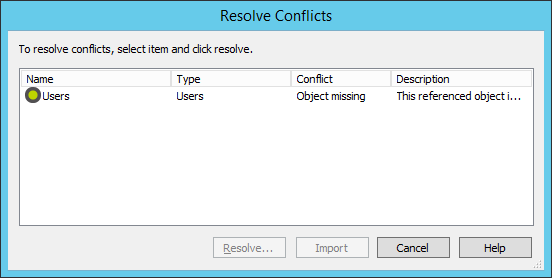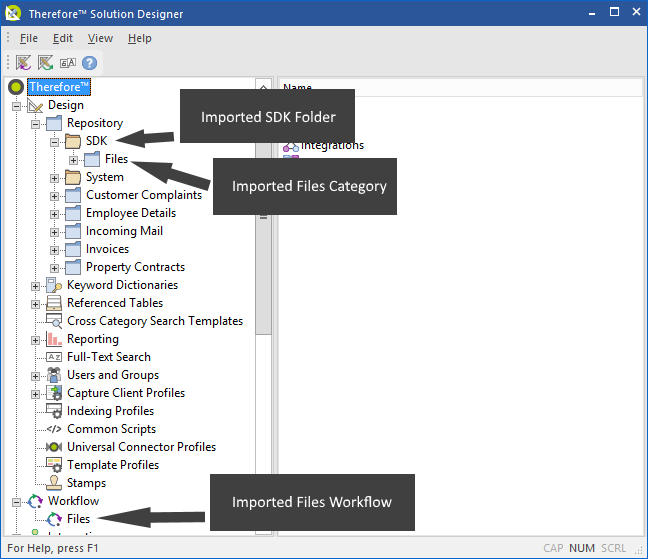
|
Sample Projects |
Scroll |
We have create a number of sample projects to help you, but before you can use these some configuration needs to be done.
The Therefore™ SDK installation installs a number of files and folders to your PC.
File/Folder |
Description |
Sample Documents |
These are sample documents that are used in the provided examples. |
Samples CSharp |
These are sample projects written in Microsoft® Visual C#® |
Samples VB.Net |
These are sample projects written in Microsoft® Visual Basic®. |
API.chm |
The Therefore™ API help. |
Archive All.ps1 |
A Windows PowerShell™ script for saving the sample documents to the sample SDK Category |
Archive All.vbs |
The same script for saving the sample documents to the sample SDK Category, but this time in Microsoft® VBScript. |
Files Category.xml |
A sample category, saved searches and workflow. |
Simple Invoice Category.xml |
A sample category with a user defined data type. |
Simple Invoice DataType.sql |
A database table used for creating the user defined data type. |
1.Firstly the sample Files category needs to be imported into Therefore™. Open the Solution Designer click File and the Import. Select the file "Files Category.xml". We would like to import all the elements: SDK folder, Files category and the Files workflow.

2.Because specific users have been assigned in the workflow, these need to be resolved to match users in your system. Select Users then click Resolve. Select a relevant user from your system as the user for the sample workflow. Once done, the Import button will become active. Click Import.

3.You will now be able to see the imported components.

4.Next we will populate the sample Files category with the sample documents from the folder "Sample Documents". To do this run either the Windows PowerShell™ script or the Microsoft® VBScript (ArchiveAll). Note: if you would like to use your own sample documents, replace the documents in the "Sample Documents" folder before running the script. You can also later add more documents in the same way.
|
•When using the Microsoft® VBScript, no progress is shown, you need to wait a while (few seconds) until a dialog appears which reports that the documents were saved correctly. •Both scripts use COM classes to communicate with the API, which is another method that you could also use to communicate with the API. |
5.The last configuration step is to add a sample for Data types (indexes from database fields). For Microsoft® SQL Server®, open the file "Simple Invoice DataType.sql" and execute the script. This will create and populate the Customer table within the Therefore™ database. (Normally this would be done by creating a view in the Therefore™ database). For other database types, you can either created the table manually or edit the script as required. Once this table exists, import the sample category and data type contained in "Simple Invoice Category.xml" using the Solution Designer.
6.You are now ready to start using the SDK sample projects.
|
•For AddIns, ".reg" files are included in the project. With ".reg" files that start with „register“ the AddIn can be activated and those with „unregister“ will deactivate it. Each project has a register-unregister set for „x86“ (for 32-bit systems) and „x64“ (for 64-bit systems). •All AddIns must also be registerd using the "RegAsm.exe". |

